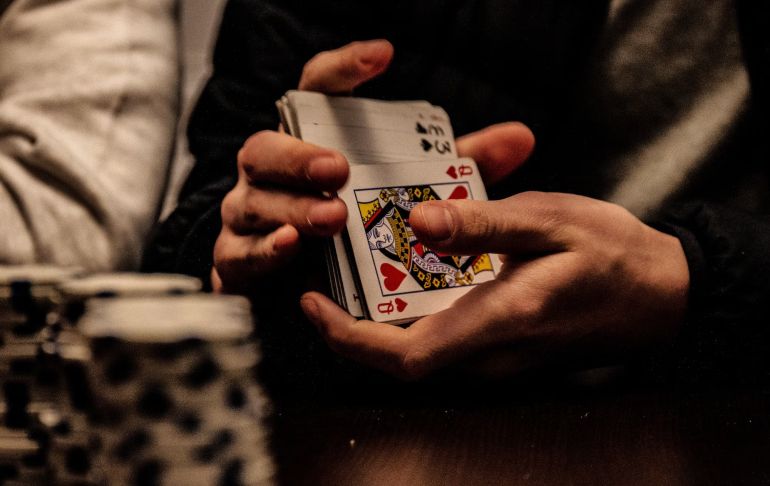23 Feb
Since the early 2000s, online poker has been gaining popularity, peaking with what is known as the poker boom between 2003 and 2006.
Critics thought that online poker would snuff out the real world casino version, but in reality quite the opposite has happened. The two exist side by side, online poker providing constant action and live poker providing the atmosphere and unique experience that players love.
If you’re a poker player in today’s world, you may have even played your first games online. So, how does an online player adjust for the live game, and vice-versa? Let’s take a look at the key differences and adjustments that need to be made.
Rules are the same
The first point to acknowledge is that, assuming you’re playing the same format of game, the rules of poker are the same no matter if you’re playing online or live.
This includes all the fundamentals of the game – hand strength, odds, betting, and so on. Any skills and general knowledge you have about poker is easily transferable between the online and live environment.
Generally speaking, you’ll have access to many different formats of poker online, from classic Texas Hold’em games to knockout tournaments, and much more. You’ll also find regular special events with millions of dollars in prizes.
The environment is different
What is different, in a big way, is the environment. Online poker is usually played at home, maybe on the move. Live poker can take place at local casinos or, for international events, at luxurious venues across the world.
It’s exciting to be sat down with dozens or hundreds of players from different backgrounds. It’s a much more sociable experience.
When it comes to play, the key difference in live poker is that you can actually see and hear your opponents. This provides the opportunity to make physical reads based on speech and body language. Physical reads are not reliable as a single measure of hand strength, but combined with other information they add to the overall picture of other players.
Game speed
The other elements you’ll notice straight away when switching between live and online poker is the speed of the games. In live poker, you can expect to see an average of 30 hands per hour. Online, where hands are automatically dealt, and time banks keep players active, you’ll see an average of 80 hands or more.
For online players, switching to live will seem slow at first. You can use this extra time to watch other player’s hands more carefully and to pick up on tells.
For live players, switching to online will seem very fast-paced. This is a plus point for many, but does take a bit of getting used to. Once you’re used to the pace, online poker also gives you the option to multi-table.

Distractions are different
When playing live poker, distractions come in different forms. The slower pace of the game can make it easier for the mind to wander, and soon enough you’ll be staring around the room at the flashing lights of the other games.
The other major distraction when playing live is the chit-chat. There’s a balance here. Poker should be enjoyable, especially if you’re making the trip to the casino. Yet, an overly friendly player nattering your ear off during a hand isn’t going to help. Learn to disengage when needed.
Online, the major distractions are whatever you have around the home, usually TV and mobile. Avoiding these during play is half the battle. You might want to switch off notifications.
Whether you’re accustomed to live or online poker, knowing the potential distractions and learning to avoid them is important.
Online games are considered tougher
This is a bit of a generalization, but most players agree that online games are comparatively tougher than live games.
Playing a $25 game online is likely to see you pitted against competent players who know the game well. Playing the same stakes at a local casino will typically see you up against more recreational players with the attitude of spending the buy-in as a night out.
Players who learn online will see more hands per hour and play many more games in a session, so it’s easier to gain experience rapidly online, making for a competitive environment.